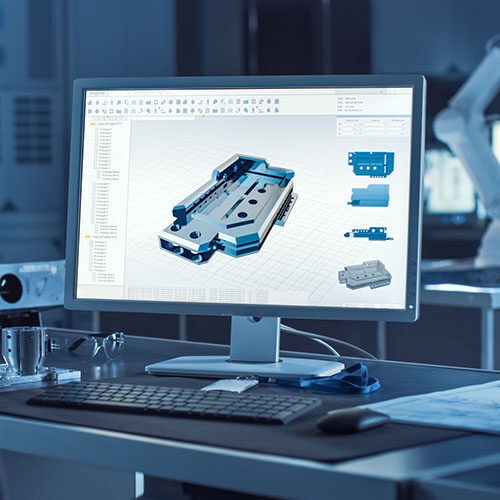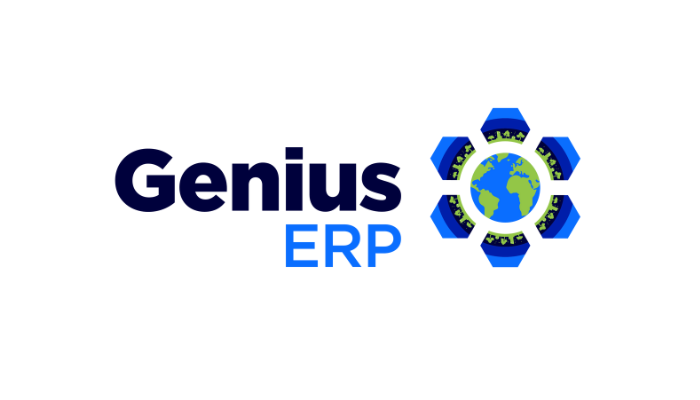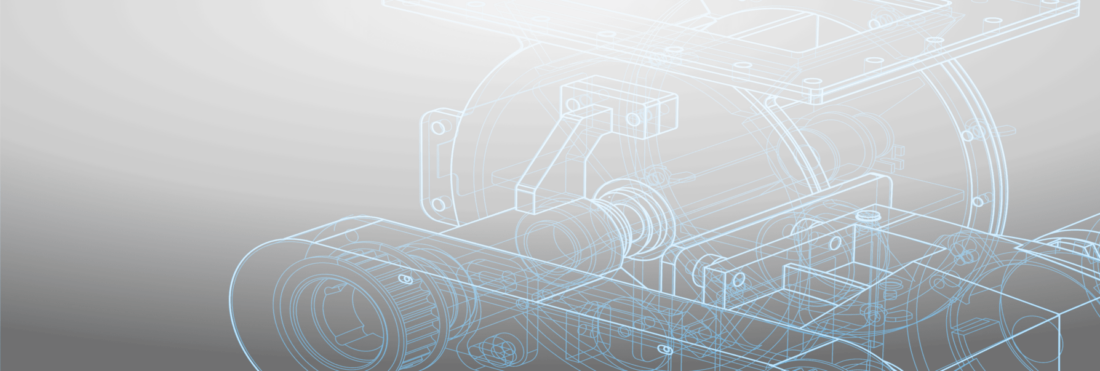
An ERP system is one of the biggest investments that a manufacturer will ever make — but it will pay off in the long run. Though difficult to calculate, the ROI of an ERP system is immense, and manufacturers will see a significant reduction in costs after implementing an ERP system.
What Is an ERP — and How Much Does It Cost?
ERP, for those unfamiliar, stands for Enterprise Resource Planning. A good ERP software system connects and integrates all aspects of your business giving you visibility over your entire operation and letting you create better manufacturing processes, lower costs, and improve performance.
A manufacturing ERP system is a complete software system that includes all the features and functionalities a manufacturer needs to automate and streamline business processes, not just related to manufacturing, but across their entire enterprise.
ERPs help manufacturers with all aspects of their business, including inventory, scheduling, sales, quotes and estimates, job costing, customer relationship management, accounting, human resources, project management, and much more.
ERPs power your business with accurate data, and help you to increase efficiencies and reduce costs across your organization.
In short, ERPs do it all.
How much an ERP will cost your organization is difficult to determine as it depends on several factors, including the size of your company, how many users you will have, how many ERP modules you will use, any customizations you want to make, your IT infrastructure, how you plan on hosting the system, and the specifics of your ERP implementation project.
No matter the characteristics of your organization, it is safe to say that ERPs are a large investment for any manufacturer.
What Problems Does an ERP Solve?
ERPs are fully integrated systems that connect and power every department and every aspect of your business. ERPs provide manufacturers with a powerful, real-time tool that runs a single, shared database of information, which can be accessed by every department in an organization.
ERP solutions not only include manufacturing, supply chain management, and financial and accounting capabilities, but they also can have advanced reporting and business intelligence, sales force and marketing automation, CRM management, and project management functionalities.
An ERP will increase a manufacturer’s performance by increasing productivity, as well as by optimizing both its resource planning, and its operation as a whole.
Benefits of an ERP system:
- Share information across your organization and increase collaboration between departments
- Increase your throughput
- Gain business intelligence and make better business decisions
- Deliver more jobs on time
- Reduce inventory costs
- End purchasing errors
- Improve production efficiency
- Lower operational costs
- Integrate manufacturing and accounting
- Accurate job costing
- Increased efficiencies across your organization
- Simplified, error-free accounting
- Smarter cash flow
- A more effective sales team
ERPs that are specifically designed for custom manufacturers will give you even more rewards:
Inventory Management:
Inventory management, including the managing of long-lead items, is a major issue for custom manufacturers.
Keeping track of inventory, and knowing when you need to order critical parts or raw materials is something that custom manufacturers need to be able to do very effectively.
An ERP equipped with a robust inventory management system will integrate your inventory management with the rest of your operation, making tracking inventory throughout your organization easy. You will be able to keep track of the inventory you use on each job, which, for example, will let you do proper production planning.
Knowing real-time stock levels also make it easier to replenish inventory — a good ERP can either automatically reorder materials for you, or send your purchasing manager a timely reminder letting her know that items need to be reordered.
You will be able to easily manage long lead-items, as you can know about these items during the design phase of a project, and have more time to order items.
Quoting and Estimating:
Making a fair quote — but one that still lets the business turn a profit — is difficult in a custom manufacturing environment.
ERPs can help custom manufacturing companies create better quotes, and better understand job costs. Instead of quotes and estimates being educated guesses at best, ERPs supply you with data that makes this process easier.
Although each product you build is unique, an ERP contains a stockpile of historical data from past jobs and products that you can access and analyze to help create better quotes.
The use of a robust and integrated ERP solution will also stop the guesswork that goes into job costing, by letting you use accurate and real-time data and metrics to determine real job costs.
A good ERP tracks all of the costs of a manufactured item or a process including material, labor, equipment, outsourced operations, as well as other resources that are directly required to manufacture an item—helping you keep on top of profit margins.
Scheduling:
Scheduling is another area that can be a major challenge for custom manufacturers. Balancing machine and labor schedules to ensure maximum efficiency is a difficult task for custom manufacturers, and one that requires a lot of insight into your operations, and the jobs you have on the go.
Without an integrated system that connects and gives you data from across your organization, the task is nearly impossible.
One of the greatest benefits of ERPs is their ability to provide comprehensive visibility. An ERP gives you an overarching view of your operations, letting you know how every aspect of your operation is performing, including your shop floor. An ERP can give you production statistics, like staff productivity and machining time.
And with an ERP, what used to take hours can be done automatically — giving you a comprehensive overview of your operation. You can use this information to optimize production schedules, for both equipment and labor, to maximize capacity and increase your throughput.
Product Engineering:
Do you know that up to 20% of the total engineering time in your shop is taken up by transferring Bills of Materials (BOMs) out of your CAD system? This is an especially time-consuming task for custom shops where every item you manufacture is truly unique.
But you can get this time back, and have your engineering department working on more important tasks than data entry, by having your ERP system integrate directly with your CAD software.
With a fully integrated system, your engineer will be able to seamlessly export the BOM from your CAD system into your ERP, creating a fully itemized list of the materials, and making it easy to compare the materials needed for the project against what you already have on hand. Not only will you save time and remove errors that come from manual data transcription and entry, but you will also always be confident about what materials you need to get a job done on time and on budget. Selecting an ERP with this functionality is key for custom manufacturers.
How to Project the ROI of an ERP Investment?
ERPs are large and complicated systems that connect and interact with every department, process, and system within your organization. This gives you many advantages and increases efficiencies, but conducting an analysis of such a wide-reaching system — and one where the benefits can sometimes be hard to quantify —is no easy task.
Because an ERP system is so wide-reaching, it is difficult to accurately and completely parse out both the hidden costs to how you are doing things now, as well as the hidden benefits of an ERP system.
For example, ask yourself how much it actually costs your organization to run your business off of Excel spreadsheets. What about delays in production that happen because your staff is working off of spreadsheets with errors and inaccurate information? To create an accurate analysis, you will need to think long and hard about your current business processes.
Conversely, ask yourself how much is it worth to improve strategic planning within your organization? Putting a dollar value on something like this can be difficult, but the data you can pull out of your ERP system will help you with your strategic and long-range planning, which will in turn bring you many benefits down the line.
An ERP system has immediate value to your organization, for example, helping you to reduce wasted time, better manage your inventory, improve your profit margins, and reduce mistakes and miscalculations.
Accurately putting a quantifiable figure on all of these isn’t easy, but below are some numbers that we typically see when a manufacturing company starts to use an ERP system.
ROI from investing in an ERP:
- 19% reduction in operating costs
- 15% reduction in administrative costs
- 19% reduction in inventory costs
- 18% reduction in obsolete inventory
Want to get a great return on your ERP investment? Get the ERP system built specifically for custom manufacturers. See Genius ERP in action and what it can do for you.
Get your eBook Scared to implement a new ERP?
"*" indicates required fields



